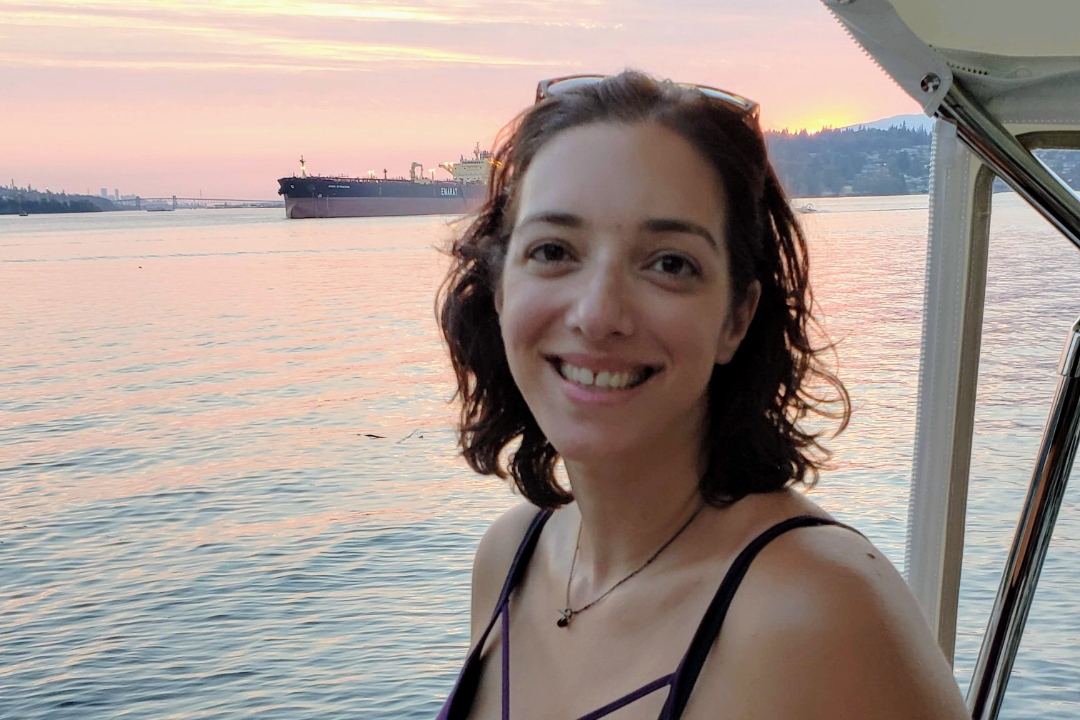The CNIB Foundation’s Come to Work program is designed to set up job seekers for success, regardless of where they are in their career paths. It isn’t limited to people looking for their first jobs – it can be just as life-changing for talent who are looking to re-enter the workforce.
Such is the case of Stefanie Volpe, a mother of two from Maple Ridge, British Columbia.
At 21, Stefanie was diagnosed with punctate inner choroidopathy (PIC) – a disease that causes inflammation in the back of the eye. Within nine years, she was living with partial sight.
In 2019, Stefanie began volunteering with the CNIB Foundation, where she learned about the Come to Work program.

“A Foundation staff member thought I would be interested,” says Stefanie. “I was on the fence because I was out of the workforce for a long time, but I thought, ‘You know what, let me give this a shot.’”
Stefanie participated in a range of workshops and courses through the program. Guest speakers spoke to her about their careers as employees with sight loss, and roundtable discussions allowed her to hear from other participants in the program.
That being said, she believes the most beneficial aspect of the program is the guidance she received from Ana Booth, Come to Work's Outreach Coordinator.
“I met with Ana and chatted with her about the program and through that, she gave me tips for interviews and much more,” explains Stefanie. “That little bit of guidance and advice was so helpful.”
Through the program, Stefanie landed an interview at The Family Education & Support Centre in Maple Ridge – a non-profit organization that facilitates growth and development in families and communities. When she heard the exciting news, she contacted Ana immediately.
“Ana and I talked about how I would approach the interview and how I would disclose my condition to my potential employers,” says Stefanie. “At the end of my interview, I told them, ‘Listen, I didn’t want to wait until the end of the interview to tell you about my sight loss, but I wanted you to get to know me for me, my job skills and my strengths, and not have any pre-conceived notions about my abilities.’”
“It was a pleasure to work with Stefanie,” explains Ana. “She is a bright and intelligent woman. It was easy to highlight her skills and strengths as we looked at job opportunities and next employment steps.”
Shortly after, Stefanie was offered a position as a Mentor Coordinator with The Family Education & Support Centre, where she is responsible for recruiting youth mentors, matching them with kids in the program, communicating with parents and more.
“I love how understanding and inclusive the staff is,” explains Stefanie. “They are open to learning more about my vision loss and accommodating any needs I have to be able to do my job, and they see beyond my sight loss – they're helping me reach my full potential”
She encourages job seekers with sight loss not to give up, and she advises employers to keep an open mind when reviewing their candidates.
“Talk with someone who is blind or partially sighted and learn more about them,” says Stefanie. “The situation might be, ‘Hey, we have an amazing candidate who just needs a magnifier to help her do a great job.’”
“I loved the Come to Work program – I’m so happy I reached out to get involved,” exclaims Stefanie.